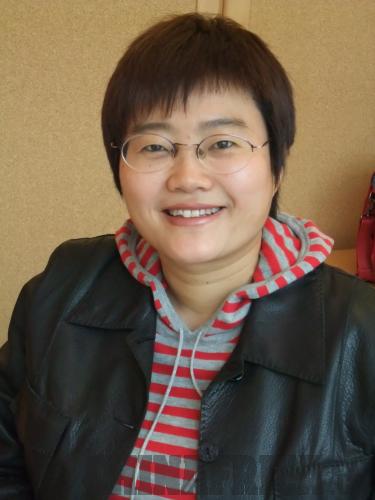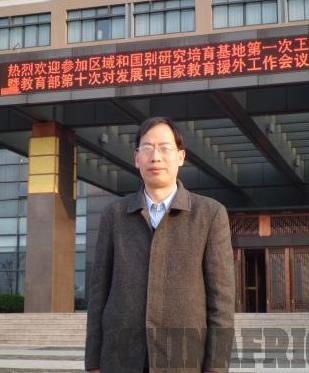China-Africa relations take a big step up the ladder of cooperation as 2015 winds down with the Second Summit of the Forum on China-Africa Cooperation (FOCAC) in Johannesburg, South Africa on December 4-5, preceded by the Sixth FOCAC Ministerial Conference on December 3. The Johannesburg Summit, themed Africa-China Progressing Together: Win-Win Cooperation for Common Development, is historic, being the first time a FOCAC summit is held on African soil. ChinAfrica invited some Chinese experts and scholars to share their views on the summit and the future development of Sino-African relations.

He Wenping
Senior Researcher of the Charhar Institute and Senior Research Fellow of the Institute of West Asian and African Studies, Chinese Academy of Social Sciences
China-Africa cooperation will be strengthened in many areas in the coming years, especially in industrial capacity and peace and security.
In terms of industrial cooperation, China and Africa need each other and can conduct win-win cooperation. After years of fast development, China is in the process of readjusting its economic structure. The domestic market cannot fully utilize its industrial capacity and the excess needs to be transferred to other regions that have a demand for it. African countries, with their lower industrialization levels, need to increase their industrial capacity for further development.
African countries have developed fast in the past decade, establishing the foundations of industrialization in terms of capital, economic restructuring, human resources and market integration. The time is right for them to cooperate with China to improve their industrial capacity. I expect some cooperation projects in this regard to be confirmed between China and African countries at this summit with implementation plans. And I hope the first achievements will come in the next three to five years, thereby improving the industrialization levels of African countries.
China should also make greater contribution to maintaining and promoting peace and security on the continent. Cooperation in peace and security is very important. North African countries, impacted by the "Arab Spring," are still in the process of social transformation. Some have been witnessing increasing terrorist activities and some are facing internal unrest, and even civil war, in the wake of national elections or factional fighting. This has hampered the economic development and threatened peace and security, not only in the countries affected but also in the regions where they are located, and even the entire continent.
Since the Fifth FOCAC Ministerial Conference in Beijing in 2012 made peace and security one of the five priorities for cooperation, progress has been achieved in this regard. In his address to the UN General Assembly in September, Chinese President Xi Jinping announced China would establish an 8,000-troop standby peacekeeping force. Xi also said China would provide $100 million in military assistance to the African Union (AU) in the next five years to support building the African Standby Force and the African Capacity for Immediate Response to Crises.
After 15 years, the FOCAC mechanism now faces some challenges. The goals and measures put forward at the gatherings have been covering increasingly wider areas with increasingly higher requirements. Under these circumstances, some projects have good beginnings but poor endings. This should be changed.
I suggest the triennial FOCAC Ministerial Conference be held every five years instead, or focus on project quality instead of quantity.
In addition, FOCAC coordination mechanisms and the participation of African countries should be improved. China has an inter-ministerial commission to coordinate among its ministries and the project implementation units and monitor progress of the projects. But there is no such mechanism in the AU. African scholars also told me that Africa should have a similar mechanism to increase African countries' participation in FOCAC. When African countries have such a mechanism, their independence in FOCAC can improve. We have diagnosed the problem but there is no effective measure to resolve it in practice.
China also needs to innovate and modify its foreign aid organs. Having increased its foreign assistance, China should establish an independent foreign aid department to coordinate the work undertaken in this area. African countries can also establish a special body within the AU for smooth communication with China.

Li Anshan
Director of Center for African Studies at Peking University
I am sure China-Africa cooperation will be upgraded to a new level at the Second FOCAC Summit in South Africa.
China and African countries are in different stages of development and productivity. While products such as steel, cement, glass and rubber have become surplus in China, many African countries need them badly for their industrialization. On one hand, industrialization in African countries is gaining momentum and needs capital, machinery, technology and managerial expertise or professionals. On the other hand, China needs industrial upgrading and its surplus capacity needs restructuring. This can generate new opportunities for scaling up China-Africa cooperation.
There are three crucial tasks for African governments, or any government - feeding their people, providing them with jobs, and monitoring public health. In the new stage of Sino-African cooperation following the Johannesburg Summit, China will help Africa build up three major systems, namely, a sustainable and self-reliant industrial system; a food security system; and a public health system for prevention and control of diseases. China will get more involved in helping Africa resolve the two major issues hindering the continent's development - underdeveloped infrastructure and the lack of qualified professionals. More efforts will be made to enhancing bilateral cooperation in the following five areas: industrialization, agriculture, public health, cultural exchanges, and peace and security.
Another important issue for the summit is strengthening people-to-people contact. People-to-people relationship is the foundation of any bilateral relationship. There are misunderstandings between Chinese and Africans. In order to consolidate bilateral relations, it is essential to strengthen mutual understanding between Chinese and Africans and broaden their knowledge of each other. A recently published book, China-Africa 500: Facts about China, Africa and Relations Between the Two, marks a positive effort to promote mutual knowledge and understanding among Chinese and Africans. Both Chinese and African youth will benefit greatly from it. Without an understanding of each other's culture, the bilateral relationship would be shallow, concentrating only on the economic or material aspect. I am sure with the summit China-Africa cooperation in people-to-people contact and cultural aspects will be upgraded, and with more young Africans coming to China and more Chinese visiting Africa, closer contacts between ordinary people will be established.
FOCAC has been in existence for 15 years. It has no doubt achieved great success. Take Ethiopia-China cooperation for example. Ethiopia has created several firsts in the past years: the first ring road, the first expressway, the first city light rail, the first electric railway, and the first wind power project, which are all financed by China. These infrastructures have created a good investment environment for attracting foreign investment to Ethiopia. They have also promoted local industries and the economy.
However, there is still room for improvement in the FOCAC mechanism. First, more sustainable measures should be adopted to deepen bilateral relations. It is unsustainable for both sides to emphasize summit diplomacy while neglecting contact at grassroots. Both China and Africa should contribute to the consolidation of FOCAC not only materially but also culturally.
Second, both sides should bring in more forces to broaden the social basis of FOCAC. For example, entrepreneurs who have made a contribution to China-Africa relations should play a more active role in FOCAC; so should other social forces, such as women, young people and people from all walks of life.

Zhang Zhongxiang
Executive Director, African Studies Center, Shanghai Normal University
At the Johannesburg Summit, China and African countries will plan and announce detailed measures for Sino-African cooperation for the next three years, which will lift bilateral cooperation to a new level.
China-Africa cooperation has been developing very fast in the past half century, covering various aspects such as politics, the economy and culture. The last 15 years, in particular, since FOCAC was established, have witnessed the fastest development in Sino-African relations. In the coming three years, China and African countries will focus on industrial capacity cooperation, medical cooperation, people-to-people contact, and peace and security cooperation.
Medical care is a key area for cooperation. Owing to the low economic development, African countries have inadequate facilities to prevent and control epidemics and diseases. Last year, China helped some West African countries combat Ebola and achieved good results, accumulating valuable experience. In the next three years, China is expected to take new measures to promote medical cooperation, including greater cooperation in the public health system, helping the AU and African countries establish and improve disease prevention and control systems, conducting information exchanges and cooperation on containing deadly diseases, encouraging personnel exchanges and increasing medical aid projects.
Industrial capacity will be an important part of China-Africa cooperation as it can help African countries realize industrialization and ease their high unemployment rates. Most African countries are in urgent need of industrialization and economic diversity. The AU's Agenda 2063 vows to build the continent into a "prosperous Africa, based on inclusive growth and sustainable development." Currently, African countries are in the preliminary stage of industrialization and in great need of capital, equipment and technology. So China-Africa cooperation in industrial capacity has great potential.
Though the FOCAC dialogue platform has proved to be a successful multilateral cooperation mechanism, efforts should be made to improve it. Currently, there are too many sub-forums under FOCAC. Their number should be controlled and their quality improved so that they contribute more to China-Africa cooperation. FOCAC should also have new cooperation areas.
In addition, African countries should be motivated to take initiatives so that they can play a bigger role in the FOCAC mechanism. They can be more active in working together with China to make the mechanism sustainable.
At the Johannesburg Summit, the Chinese Government will declare its new Africa policy for the development of China-Africa relations in the coming five to 10 years. This will be the second policy paper after it released China's Africa Policy in 2006.